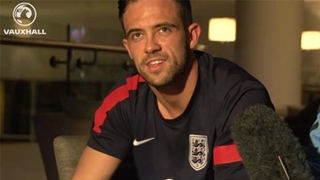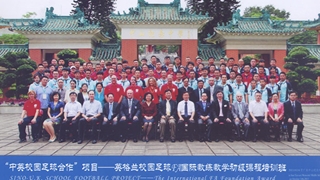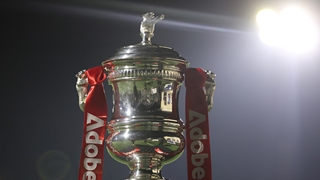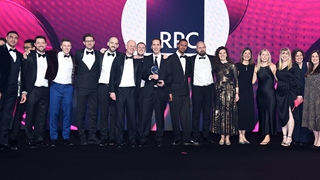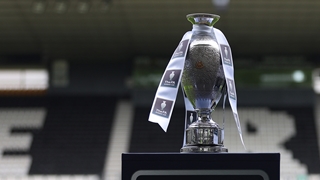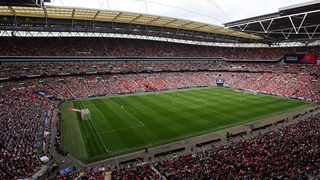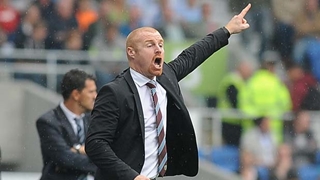
Navigating a successful route from the Championship to the Premier League is renowned as one of the toughest tasks in the English game.
Doing so with a limited budget, a small squad and after being tipped for relegation would render the task impossible for most but not so for Burnley and their manager, Sean Dyche.
After beating Wigan Athletic on Easter Monday, the Clarets accomplished the challenge with two games to spare and in a season filled with intriguing managerial stories, it could be easy to overlook Dyche’s own entry for manager of the season.
It is only 18 months since the 42-year-old was handed the reigns at Turf Moor, where Dyche’s brand of player-centred coaching has brought an end to the Clarets’ four-year Premier League absence.
"We make the environment a good place to be and I think that’s important," said Dyche, who told the FA Licensed Coaches’ Club that he began his tenure in East Lancashire by selling his own skills as a manager and encouraging "open lines of communication" by distributing a questionnaire.
"Players are human and if you can make it an enjoyable but informative environment then I think that’s the right way to work.
"The first thing really is to align your new group with what you can offer them - that’s certainly what I did. I thought there were things we could put in place to enhance their individual potential and collective potential.
"I gave them a brief presentation on what they’d get from me, and what I expect of them and laid down some - not firm - but straight and simple ground rules to move the group forward.
"In the same presentation, I gave them a question and answer sheet, to get some feedback on where they thought they were at and where they thought training was at and what their thoughts were on what was needed to progress."
To ease the process, Dyche promised his new squad anonymity and hoped the process would lay down the foundations of an open culture.
"I wasn’t looking at handwriting to try and catch them out," he revealed. "I was trying to get them to understand that I was interested in their thoughts as well.
"You’re trying to build a professional rapport. It doesn’t have to be best mates but there has to be a respect, certainly between the manager, the staff and the players and to build that as quickly as possible is important.
“I have a pragmatic philosophy, I look at the group I’ve got, then I decide what strengths and weaknesses they have”
Sean Dyche
"Winning galvanises that, because if you lay down certain criteria for what you want and you can reinforce that with wins, then everyone buys in quicker.
"If you don’t win, the challenge is sometimes tougher to make them believe what you think is good work and what would be good for them."
Fortunately for Dyche, whose only previous managerial experience was a short spell in charge of Watford, winning has largely been commonplace during his time with the Clarets.
And although his side have played some attractive, high-energy football, Dyche is keen to stress that winning is the only thing that matters when it comes to stylistic discussions.
"The modern train of thought is that suddenly there’s a "right way" of playing," he explains.
"I don’t know who said that, I’m intrigued by it if I’m honest. If the so-called right way of playing is 500-700 passes a game and rolling out from the ‘keeper and having 50-70 passes up to the other end and scoring, then you better have some good players.
"I have a pragmatic philosophy, I look at the group I’ve got, then I decide what strengths and weaknesses they have and then I formulate what I think is an appropriate way that those players can work in order to be individually and collectively successful to win games."
Articulate, down to earth and a graduate of The FA’s UEFA Pro Licence course, Dyche is an example of a young, home grown coach with a promising future.
And although he is keen to stress that he is still learning his trade, his is the type of story he believes should be talked of more.
"Sometimes we’re quick to jump on [the back of] English coaches and English management rather than back some of the good work which is going on," he added.
"With St Georges Park, The FA have taken responsibility of the future and have come out with this fantastic facility – a great learning facility for people and it can only help enhance the productivity of coaching and management in this country.
"I think there’s some very good people in this country, doing some very good work and it’s just overlooked a little bit for many different reasons."
Watch the first part of the interview in the video player above and the full interview with Burnley manager Sean Dyche is available now on The FA Licensed Coaches’ Club website as part of our Coaching Masterclass series.
The FA Licensed Coaches’ Club Masterclass series includes over 60 coaching practical sessions and interviews with experts from the game.
FA qualified coaches with up to date coaching qualifications can join The FA Licensed Coaches’ club for free here: www.TheFA.com/FALCC





